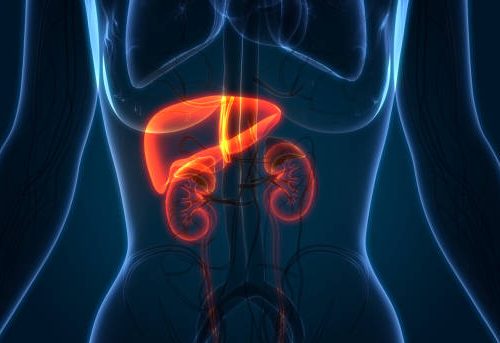Is CBD Harmful to Your Liver and Kidneys?

Cannabidiol, more commonly known as CBD, boasts a fascinating history deeply rooted in the use of the cannabis plant, which spans thousands of years. Ancient civilizations in China and India, dating back to 2737 B.C., were among the first to recognize the therapeutic properties of cannabis. Early records documented the use of cannabis for a variety of medicinal purposes. Throughout the 19th and early 20th centuries, cannabis-based medicines containing both CBD and THC were readily available and widely employed for pain relief, anxiety, and other conditions.
The early 20th century saw a significant shift in attitudes towards cannabis, largely fueled by concerns about the psychoactive effects of THC and a growing moral panic. This period led to the prohibition of cannabis in many countries, which, in turn, stigmatized the plant and halted its use for medicinal purposes. Despite this, CBD was discovered by chemist Roger Adams in 1940 and its chemical structure was later elucidated in 1963 by Israeli scientists Raphael Mechoulam and Yechiel Gaoni. Their work set the stage for understanding individual compounds within the cannabis plant, including CBD.
The 21st century has marked a renaissance for CBD, characterized by renewed interest in its therapeutic potential. Changing perceptions of cannabis, along with the separation of CBD from the psychoactive effects of THC, have contributed to this resurgence. Legislative changes in various countries and states have led to the legalization of CBD for medical and, in some cases, recreational use. CBD’s potential medicinal applications have been a focal point of scientific research, with promising findings for conditions like epilepsy, chronic pain, and anxiety. As a result, CBD has garnered mainstream acceptance as a wellness and alternative medicine product, and it is now widely available in various forms, from oils and tinctures to capsules and topicals. The evolving history of CBD underscores the changing landscape of cannabis perception and its continuous discovery of potential benefits.
The Kidneys And Liver
The kidneys and liver are two of the body’s most crucial organs, each playing distinct and indispensable roles in maintaining overall health. The kidneys act as the body’s natural filtration system, removing waste products and excess fluids from the bloodstream. They also help regulate blood pressure, electrolyte balance, and maintain the body’s acid-base equilibrium. Additionally, the kidneys contribute to red blood cell production, ensuring the body receives an adequate oxygen supply. Their role in detoxification and metabolic functions is vital for our overall well-being.
Conversely, the liver is the body’s metabolic powerhouse. It participates in nutrient processing and storage, regulating blood glucose levels, and synthesizing important molecules like cholesterol. The liver excels in detoxifying the body by processing and neutralizing toxins and drugs. It also contributes to digestion by producing bile, which aids in the absorption of dietary fats. The liver stores crucial vitamins and minerals and is responsible for synthesizing various proteins, including those essential for blood clotting. Its multifaceted functions support overall homeostasis and bodily functions.
In essence, both the kidneys and liver are indispensable for maintaining our health. They work in harmony to filter and detoxify, regulate various bodily functions, and ensure that the body’s internal environment remains balanced. Caring for these vital organs through a healthy lifestyle and regular medical check-ups is essential for a lifetime of well-being.
Is CBD Harmful to Your Liver and Kidneys?
CBD and the Liver
1. Clinical Studies: A study published in the journal “Epilepsia” in 2017 found that high doses of CBD may lead to elevated levels of liver enzymes, which can be indicative of liver inflammation. However, this effect was observed primarily in individuals with specific pre-existing liver conditions, such as fatty liver disease. For the general population, CBD was well-tolerated, and significant liver issues were not reported.
2. Dosing and Risks: The liver processes and metabolizes various substances, including drugs and cannabinoids like CBD. It’s important to note that extremely high doses of CBD were used in the study mentioned above. Most individuals taking CBD at standard doses do not experience adverse liver effects. Nevertheless, it’s essential to consult with a healthcare professional if you have liver concerns or pre-existing liver conditions before using CBD.
CBD and the Kidneys
1. Limited Research: Unlike the liver, there is significantly less research on CBD’s direct impact on the kidneys. While the endocannabinoid system, where CBD exerts its effects, plays a role in kidney function, the available studies have not shown substantial kidney-related concerns.
2. Potential Interactions: Some researchers have suggested that CBD might interact with medications that impact kidney function, such as nonsteroidal anti-inflammatory drugs (NSAIDs). However, more research is needed to fully understand these interactions and their clinical significance.
3. Importance of Hydration: One potential concern with CBD is that it can cause dry mouth, which may lead to decreased fluid intake. It’s essential to stay well-hydrated when using CBD products, as dehydration can impact kidney function.
Conclusion
While concerns have been raised about CBD’s potential impact on the liver and kidneys, the available evidence suggests that CBD is generally safe when used at standard doses. It’s crucial to consider individual factors, such as pre-existing medical conditions and medication interactions, before using CBD product. If you have concerns about the health of your liver or kidneys, it is advisable to consult with a healthcare professional before incorporating CBD into your wellness routine. Furthermore, the legality and quality of CBD products can vary, so it is essential to choose reputable sources and products that have been tested for safety and potency. As research into CBD continues, a clearer understanding of its effects on various aspects of health, including liver and kidney function, will likely emerge, helping individuals make informed decisions regarding its use.





